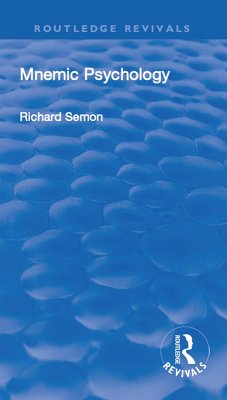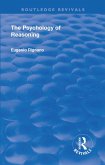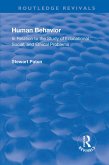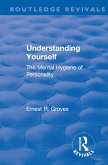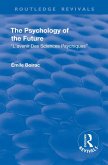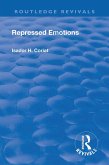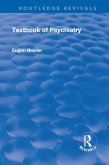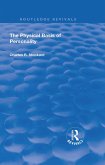62,95 €
62,95 €
inkl. MwSt.
Sofort per Download lieferbar

31 °P sammeln
62,95 €
Als Download kaufen

62,95 €
inkl. MwSt.
Sofort per Download lieferbar

31 °P sammeln
Jetzt verschenken
Alle Infos zum eBook verschenken
62,95 €
inkl. MwSt.
Sofort per Download lieferbar
Alle Infos zum eBook verschenken

31 °P sammeln
- Format: PDF
- Merkliste
- Auf die Merkliste
- Bewerten Bewerten
- Teilen
- Produkt teilen
- Produkterinnerung
- Produkterinnerung

Bitte loggen Sie sich zunächst in Ihr Kundenkonto ein oder registrieren Sie sich bei
bücher.de, um das eBook-Abo tolino select nutzen zu können.
Hier können Sie sich einloggen
Hier können Sie sich einloggen
Sie sind bereits eingeloggt. Klicken Sie auf 2. tolino select Abo, um fortzufahren.

Bitte loggen Sie sich zunächst in Ihr Kundenkonto ein oder registrieren Sie sich bei bücher.de, um das eBook-Abo tolino select nutzen zu können.
It is the reproduction of the old book published long back (1923)
- Geräte: PC
- mit Kopierschutz
- eBook Hilfe
- Größe: 37.76MB
Andere Kunden interessierten sich auch für
![Revival: The Psychology of Reasoning (1923) (eBook, PDF) Revival: The Psychology of Reasoning (1923) (eBook, PDF)]() Eugenio RignanoRevival: The Psychology of Reasoning (1923) (eBook, PDF)62,95 €
Eugenio RignanoRevival: The Psychology of Reasoning (1923) (eBook, PDF)62,95 €![Revival: Human Behavior (1921) (eBook, PDF) Revival: Human Behavior (1921) (eBook, PDF)]() Stewart PatonRevival: Human Behavior (1921) (eBook, PDF)72,95 €
Stewart PatonRevival: Human Behavior (1921) (eBook, PDF)72,95 €![Revival: Understanding Yourself: The Mental Hygiene of Personality (1935) (eBook, PDF) Revival: Understanding Yourself: The Mental Hygiene of Personality (1935) (eBook, PDF)]() Ernest R. GrovesRevival: Understanding Yourself: The Mental Hygiene of Personality (1935) (eBook, PDF)52,95 €
Ernest R. GrovesRevival: Understanding Yourself: The Mental Hygiene of Personality (1935) (eBook, PDF)52,95 €![Revival: The Psychology of the Future (1918) (eBook, PDF) Revival: The Psychology of the Future (1918) (eBook, PDF)]() Émile BoiracRevival: The Psychology of the Future (1918) (eBook, PDF)62,95 €
Émile BoiracRevival: The Psychology of the Future (1918) (eBook, PDF)62,95 €![Revival: Repressed Emotions (1920) (eBook, PDF) Revival: Repressed Emotions (1920) (eBook, PDF)]() Isador H. CoriatRevival: Repressed Emotions (1920) (eBook, PDF)52,95 €
Isador H. CoriatRevival: Repressed Emotions (1920) (eBook, PDF)52,95 €![Revival: Textbook of Psychiatry (1924) (eBook, PDF) Revival: Textbook of Psychiatry (1924) (eBook, PDF)]() Eugen BleulerRevival: Textbook of Psychiatry (1924) (eBook, PDF)94,95 €
Eugen BleulerRevival: Textbook of Psychiatry (1924) (eBook, PDF)94,95 €![Revival: The Physical Basis of Personality (1931) (eBook, PDF) Revival: The Physical Basis of Personality (1931) (eBook, PDF)]() Charles Rupert StockardRevival: The Physical Basis of Personality (1931) (eBook, PDF)57,95 €
Charles Rupert StockardRevival: The Physical Basis of Personality (1931) (eBook, PDF)57,95 €-
-
-
It is the reproduction of the old book published long back (1923)
Dieser Download kann aus rechtlichen Gründen nur mit Rechnungsadresse in A, B, BG, CY, CZ, D, DK, EW, E, FIN, F, GR, HR, H, IRL, I, LT, L, LR, M, NL, PL, P, R, S, SLO, SK ausgeliefert werden.
Produktdetails
- Produktdetails
- Verlag: Taylor & Francis eBooks
- Seitenzahl: 344
- Erscheinungstermin: 20. Dezember 2018
- Englisch
- ISBN-13: 9781351253512
- Artikelnr.: 54832402
- Verlag: Taylor & Francis eBooks
- Seitenzahl: 344
- Erscheinungstermin: 20. Dezember 2018
- Englisch
- ISBN-13: 9781351253512
- Artikelnr.: 54832402
- Herstellerkennzeichnung Die Herstellerinformationen sind derzeit nicht verfügbar.
Richard Wolfgang Semon (22 August 1859, Berlin - 27 December 1918, Munich) was a German zoologist and evolutionary biologist, a memory researcher who believed in the inheritance of acquired characters and applied this to social evolution.
Semon proposed psycho-physiological parallelism according to which every psychological state corresponds to alterations in the nerves. His ideas of the mneme (based on the Greek goddess, Mneme, the muse of memory) were developed early in the 20th century. The mneme represented the memory of an external-to-internal experience. The resulting "mnemic trace" (or "engram") would be revived when an element resembling a component of the original complex of stimuli was encountered. Semon's mnemic principle was based upon how stimuli produce a "permanent record,... written or engraved on the irritable substance," i.e. upon cellular material energistically predisposed to such inscription (Semon 1921, p. 24).
According to historian Petteri Pietikainen:
Semon argued not only that information is encoded into memory and that there are 'memory traces' (engrams) or after-effects of stimulation that conserve the changes in the nervous system, he also contended that these changes in the brain (that is, engrams) are inherited. Semon's mneme-theory fell into disrepute largely because in a Lamarckian fashion it proposed that memory units are passed from one generation to another.
Semon was a proponent of the theory of organic memory, which was popular amongst biologists and psychologists from 1870 to 1918. The theory later lost scientific legitimacy as it yielded no reliable data and advances in genetics made the theory untenable.
Translated from German by Bella Duffy
Introduction written by Vernon Lee
Semon proposed psycho-physiological parallelism according to which every psychological state corresponds to alterations in the nerves. His ideas of the mneme (based on the Greek goddess, Mneme, the muse of memory) were developed early in the 20th century. The mneme represented the memory of an external-to-internal experience. The resulting "mnemic trace" (or "engram") would be revived when an element resembling a component of the original complex of stimuli was encountered. Semon's mnemic principle was based upon how stimuli produce a "permanent record,... written or engraved on the irritable substance," i.e. upon cellular material energistically predisposed to such inscription (Semon 1921, p. 24).
According to historian Petteri Pietikainen:
Semon argued not only that information is encoded into memory and that there are 'memory traces' (engrams) or after-effects of stimulation that conserve the changes in the nervous system, he also contended that these changes in the brain (that is, engrams) are inherited. Semon's mneme-theory fell into disrepute largely because in a Lamarckian fashion it proposed that memory units are passed from one generation to another.
Semon was a proponent of the theory of organic memory, which was popular amongst biologists and psychologists from 1870 to 1918. The theory later lost scientific legitimacy as it yielded no reliable data and advances in genetics made the theory untenable.
Translated from German by Bella Duffy
Introduction written by Vernon Lee
